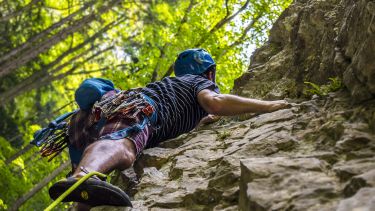- New research suggests that pursuing hobbies is linked to confidence at work
- Spending additional time on your main leisure activity boosts these resources – but only under certain circumstances
- Study highlights the double-edged sword of pursuing activities that are too similar to work
Pursuing a hobby in an intense or serious way can boost people’s confidence at work – but only if it uses different skills to their job, according to new research by Dr Ciara Kelly and colleagues at the University of Sheffield’s Institute of Work Psychology.
Hobbies and interests outside of work are increasingly occupying a central role in people’s lives, as more people remain single longer or leave it until later in life to start a family.
Dr Kelly’s study found that having a hobby that is similar to their career can leave people feeling less confident about their work. However this was only the case when individuals had a highly committed approach to their hobby, which could result in a lack of opportunities to fully recover from the similar requirements of work. For example, if an outdoor pursuit instructor intensively trains as a triathlete in their spare time, they may find that their work and leisure present the same mental and physical demands in a way that leaves them feeling drained.
On the other hand, leisure activities that are either different from work – or similar but pursued in a lighthearted, playful, less serious way – can help to keep people happy and healthy by acting as a buffer between their personal and professional lives. This barrier gives people time to develop themselves and recharge their batteries, which is particularly important in helping to generate and preserve ‘psychological resources’ such as confidence.
A high commitment approach to hobbies can help us to build skills and experiences that improve our confidence in the workplace, so is beneficial - as long as the hobby doesn’t interfere with, or place the same demands experienced at work.
Consider a scientist who is an avid rock climber. Since climbing is so far removed from their day-to-day work activities, they can still recover from the demands of their job and replenish their resources, despite investing a great deal of effort into honing their climbing skills.
When we feel like we have the confidence to tackle challenges in our jobs, we are more likely to be able to build a sustainable career and remain healthy, productive, happy and employable over our lifetimes. It’s important to consider how our leisure activities might play a role in that process.
Dr Ciara Kelly
Lecturer in Work Psychology

